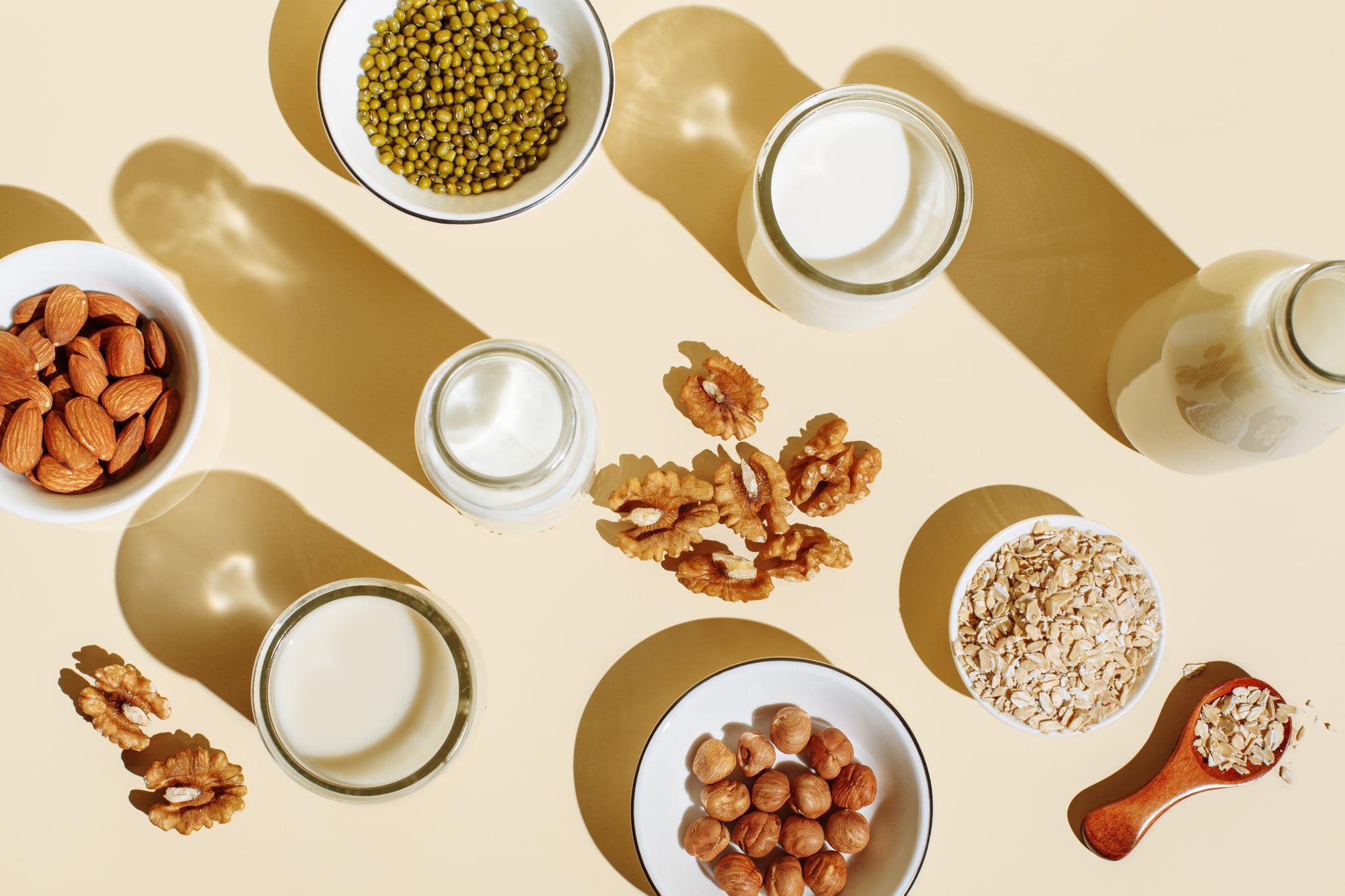
You probably already know that protein is an important macronutrient. But did you know there’s protein in every cell in the human body? You need protein in your diet to help repair cells and make new ones, per the National Library of Medicine, which makes it especially important for growth and development in children, teens, and pregnant women, as well as those trying to build muscle. That said, there’s a lot of hype around the nutrient (how many times have you seen packaged foods labeled with “high protein” or seen influencers recommend a protein powder?), so you may still be confused as to how much protein you should actually be eating in a day.
The good news is that you probably don’t need to stress over your protein intake. The National Library of Medicine sets a wide range for acceptable protein consumption, anywhere from 10 to 35 percent of your total calories each day. (For someone eating 2,000 calories per day, that’s 200-700 calories or 50-175 grams of protein.) And research shows that how much protein you eat isn’t directly related to overall mortality or specific causes of death.
But if you’ve decided to take a closer eye at your nutrient intake — or are just curious how much protein you really need — we’ve got the tools to help.
How Much Protein Should You Eat Per Day?
The standard dietary reference for protein intake is approximately 0.8 grams of protein per kilogram of body weight, says registered dietitian Jim White, a certified exercise physiologist by the American College of Sports Medicine. That’s about 7 grams for every 20 pounds of body weight. (For example, that means a 150 lb, or 68 kg, person should aim for 52 to 54 grams of protein per day.)
That number — 0.8 grams per kilogram of body weight — is generally considered the minimum recommendation for adults. For that reason, most registered dietitians suggest something a little higher, typically one to 1.2 grams of protein per kilogram of body weight, White says. (So, for that same 150-pound person, an RD may recommend eating between 68 and 82 grams of protein a day.)
That said, protein recommendations are pretty variable. While those numbers are a standard reference, your target may vary depending on your age, weight, goals, and lifestyle, including how active you are. If you’re pregnant or breastfeeding, that will also change your nutritional needs.
How to Calculate Your Personal Protein Needs
In general, it’s best to speak with a registered dietitian or your doctor to find out what kind of daily protein intake will work best for you. But if you want a rough estimate, you can do some simple math to calculate the number of protein grams per day that you might serve you well. Here’s how, with guidance from a 2016 research paper published in the Royal Society of Chemistry:
- Take your weight in pounds and divide it by 2.2 to figure out your weight in kilograms.
- Multiply that number by 0.8, 1.0, 1.3, or 1.6, depending on how active you are, as defined by The United States Department of Agriculture (USDA).
- Sedentary (0.8): Daily activities such as housework or gardening.
- Lightly Active (1.0): 30 minutes of moderate activity per day, such as walking at 4 mph.
- Active or Pregnant (1.3): 60 minutes of moderate activity per day, such as walking/jogging at 3-4 mph or 30 minutes of vigorous activity such as jogging at 5.5 mph.
- Very Active (1.6): 45-60 minutes of vigorous activity.
- That final number is the number of grams of protein you can aim for per day.
If you want to opt out of the math drill, check out the chart below to see how much protein you should be eating each day. If you don’t see your weight, just use the formula above to calculate your daily protein or check out this handy protein calculator from the United States Department of Agriculture (USDA).
| Weight (lbs) | Weight (kg) | Protein per day: Sedentary | Protein per day: Lightly Active | Protein per day: Active or Pregnant | Protein per day: Very Active |
|---|---|---|---|---|---|
| 100 | 45.5 | 36 g | 46 g | 59 g | 73 g |
| 105 | 47.7 | 38 g | 48 g | 62 g | 76 g |
| 110 | 50 | 40 g | 50 g | 65 g | 80 g |
| 115 | 52.3 | 42 g | 52 g | 68 g | 84 g |
| 120 | 54.5 | 44 g | 55 g | 71 g | 87 g |
| 125 | 56.8 | 45 g | 57 g | 74 g | 91 g |
| 130 | 59.1 | 47 g | 59 g | 77 g | 95 g |
| 135 | 61.4 | 49 g | 61 g | 80 g | 98 g |
| 140 | 63.6 | 51 g | 64 g | 82 g | 102 g |
| 145 | 65.9 | 53 g | 66 g | 86 g | 105 g |
| 150 | 68.2 | 55 g | 68 g | 89 g | 109 g |
| 155 | 70.5 | 56 g | 71 g | 92 g | 113 g |
| 160 | 72.7 | 58 g | 73 g | 95 g | 116 g |
| 165 | 75 | 60 g | 75 g | 98 g | 120 g |
| 170 | 77.3 | 62 g | 77 g | 100 g | 124 g |
| 175 | 79.5 | 64 g | 80 g | 103 g | 127 g |
| 180 | 81.8 | 65 g | 82 g | 106 g | 131 g |
| 185 | 84.1 | 67 g | 84 g | 109 g | 134 g |
| 190 | 86.3 | 69 g | 86 g | 112 g | 138 g |
| 195 | 88.6 | 71 g | 89 g | 115 g | 142 g |
| 200 | 90.9 | 73 g | 91 g | 118 g | 145 g |
| 205 | 93.1 | 74 g | 93 g | 121 g | 149 g |
| 210 | 95.5 | 76 g | 96 g | 124 g | 153 g |
| 215 | 97.7 | 78 g | 98 g | 127 g | 156 g |
| 220 | 100 | 80 g | 100 g | 130 g | 160 g |
| 225 | 102.3 | 82 g | 102 g | 133 g | 164 g |
| 230 | 104.5 | 84 g | 105 g | 135 g | 167 g |
| 235 | 106.8 | 85 g | 107 g | 139 g | 171 g |
| 240 | 109.1 | 87 g | 109 g | 142 g | 175 g |
| 245 | 111.4 | 89 g | 111 g | 145 g | 178 g |
| 250 | 113.6 | 91 g | 114 g | 148 g | 182 g |
| 255 | 115.9 | 93 g | 116 g | 151 g | 185 g |
| 260 | 118.2 | 95 g | 118 g | 154 g | 189 g |
How to Get Enough Protein Every Day
Now that you have an idea of how much protein to eat per day, you might be wondering how to reach that goal. Let’s get one thing straight: you don’t need to eat meat or even animal products to reach your protein goals. There are plenty of plant-based protein sources from beans and rice to nuts and seeds that, altogether, can help you reach your protein intake recommendations.
There’s also a good chance you’re getting enough protein without even trying. The Centers for Disease Control and Prevention reports that from 1988 to 2018, US adults have consistently gotten 15 percent or more of their daily calories from protein, which is enough for the average person.Even foods you might not commonly associate with the nutrient can offer a gram here or there, which adds up over the course of a day. For example, 1 cup of broccoli has 2.3 g, according to the USDA, and a boiled sweet potato (eaten without its skin) has another 2 g.
For reference, here are some common protein-rich foods that you might already have in your diet:
If you’re concerned about your protein intake, reach out to your doctor or a registered dietitian to get more personalized recommendations on how to get more of this important nutrient. Otherwise, rest assured that you’re probably doing just fine.
— Additional reporting by Jenny Sugar and Christina Stiehl
Image Source: Getty Images / Tanja Ivanova
